'The EC seems to have killed the joy of elections by stretching it interminably.'
'Imagine watching Andhadhun in a six-hour format and you will get the point,' says Saisuresh Sivaswamy.
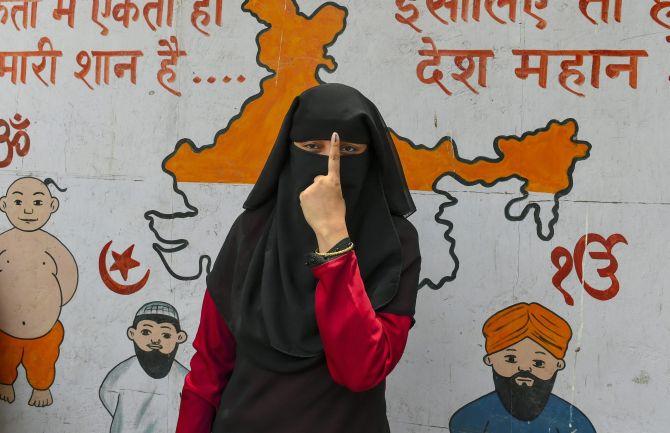
With six phases of the Lok Sabha polls concluded and just one left to go, there is a sense of fatigue -- among political parties, their leaders, as well as the media.
You can sense it in the topics chosen for discussion on Prime Time, the comments of the participants, in even the kind of questions posed. All of which make you long for the single-day polling that India once upon a time seemed to have managed quite well.
The multi-phase elections may have made things easier for the Election Commission of India, tasked with the peaceful and fair conduct of the world's largest democratic exercise, and the administration, but it also seems to have killed the joy of elections by stretching it interminably.
Imagine watching Andhadhun in a six-hour format and you get the point.
The fairness or otherwise of the poll process has often been questioned, especially on results day, by the losing parties.
We saw the Bharatiya Janata Party affiliates question the sanctity and integrity of the EVM in 2004, but who mysteriously fell silent in 2014, to be replaced by the Congress associates who have since been questioning the use of EVMs which stood them in good stead in 2009 and last year in three assembly elections.
No democratic process can be 100% fail-proof, especially one of the magnitude that India holds periodically for central and state office, and there will be the sporadic incident of booth-capture, EVM heist, in a nation of this size and complexity.
But to extrapolate them on to the entire election process, and to conclude that the vote was compromised, to call into question the mandate because it went against your preference and prediction, is a trend that is gathering currency.
Maybe because it makes for attractive headlines, or viral memes.
It may have been for the former reason that NDTV 24x7 and Mirror Now chose to focus on the incident in Faridabad where a BJP polling agent was arrested for influencing the voters as the lead story on Monday night.
By itself the story was open and shut. A video on social media highlighted how the agent was influencing voters in a polling station in Asawati village of Faridabad Lok Sabha constituency from where the BJP is seeking re-election.
The agent was arrested, the EC ordered repoll in the booth, and suspended the presiding officer for dereliction of duty.
Nidhi Razdan wanted to know if it was fair to judge the entire elections on the basis of a few incidents, and former election commissioner S Y Quraishi, TV networks's go-to man this season, put things in perspective when he pointed out that 'It was a cat and mouse game' between the political parties and the Election Commission.
What was surprising about this incident was that none of the polling agents from other political parties, who were present, protested, which raises the disturbing question if, to use a Mumbaiya term, 'setting' had been done.
Predictably perhaps, Times Now and its doppelganger Republic TV -- or is it the other way round? -- went with actor-politician Kamal Haasan's statement that India's first terrorist was a Hindu named Nathuram Godse.
Navika Kumar wanted to know if it was right to link Hindus to terror, while Arnab Goswami declared in his manner of prime time nabob that 'no one needs to be on the back foot on terror' -- not Hindus, Muslims, Sikhs, no one.
'No one owns the religion,' he told the nation that was waiting to know, while his hashtag honchos chose to go with #HInduSoftTarget.
This election has many regional claimants for power, hoping that the calculus shifts away from the BJP on May 23. Among them the most vocal has been Bengal's Mamata Banerjee, who has kept up a daily battle with Prime Minister Narendra Damodardas Modi.
Streetfighters both, the bout has been bloody, and often below the belt.
And now, with just one phase left to go, a new pugilist has jumped into the ring. Mayawati of the Bahujan Samaj Party has quickly shown that no insult is too low, that she can out-Mamata Mamata any day, and there are no no-go areas when it comes to being on the stump.
Her junior alliance partner in Uttar Pradesh, Akhilesh Yadav, told India Today TV's Rajdeep Sardesai that the fault was with the prime minister 'who has been making all kinds of statements about everyone'.
JNU Professor Vivek Kumar's takeaway was that the trajectory of the prime minister's speeches, 'starting with national security but now down to discussing his caste and highlighting casteism, show that the Mahagathbandhan between Mayawati and Akhilesh has been working well.'
'Mayawati is a grassroots leader and knows how to play to the gallery. Her language has been so throughout, it cannot revolve around upper class idioms only.'
The BJP's Amit Malviya, however, believed that the descent into personal calumny by Mayawati showed that the UP alliance was unravelling.
'The Mahagathbandhan did not do well in the last two phases,' which is why Mayawati was making such statements. 'Her latest remarks show that she is unfit' to hold high office. 'Because she is a Dalit,' she cannot hope to make such statements and get away.
Comments that were designed to draw Professor Vivek Kumar's ire, which it did. 'Amit Malviya's statement is typical of the upper class strata, what does he mean "not suitable for the top job"?'
And he quickly proceeded to put Mayawati's statement in perspective. 'Where someone draws charisma as a renouncer, as someone who has given up on family life, etc -- so someone can also point out the other side,' that his renunciation is actually leaving his family, which is what Mayawati did.
'There are two sides to the same coin.'
All of which made you long for some levity, which was provided by satirist Akash Banerjee and BJP spokesperson Vivek Reddy (the latter unintentionally) on NDTV 24x7 while discussing the prime minister's viral comments on cloud cover affecting radar during the Balakot air strike.
Banerjee was clear that 'We are not giving credit to the prime minister' for injecting much-needed levity in public life. Modi had said humour was needed, and now he has done his bit by making the comments on radars.
Vivek Reddy showed some more of the BJP's spirited stand throughout that the prime minister can say/do no wrong, when he suggested that what Modi was trying to emphasise was 'the challenges in the situation', and that we were 'debating one sentence, but not what he meant'.
'What the prime minister indicated was stealth and speed.'
Retired Air Vice Marshal Kapil Kak, who for some reason Reddy kept referring to as an army officer despite Nidhi correcting him, would have none of that. 'In politico-military decisions, the military input is crucial. To disregard that, and to rely on one's raw wisdom' can backfire on the operation.
What the PM did by overruling the military experts who wanted the air strike deferred because of excess cloud cover, was to 'disregard apex-level politico-military advice'.
Finally, it was left to communications consultant Dilip Cherian to have the last word.
'You are dealing with the master of image-making.'

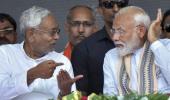







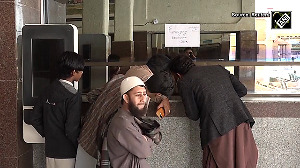
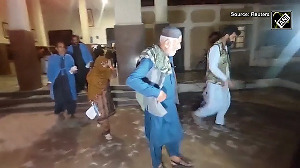
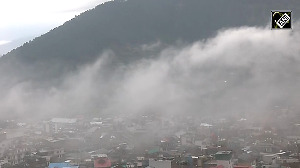
 © 2025
© 2025